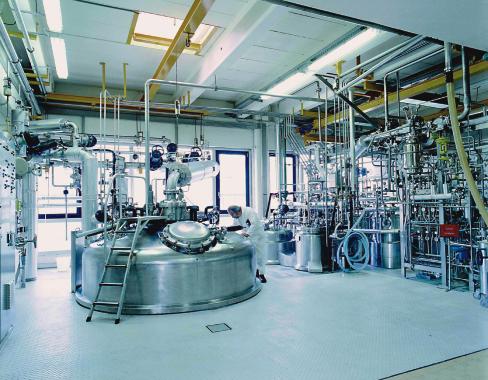New regulations drafted by the European Commission REACH in the context of a reform of the legislation on chemicals stipulate a future legal requirement for the registration, evaluation and approval of all chemical materials in usage. Due to the vast number of chemicals and process steps to be documented the administrative burden is expected to be immense. Companies concerned should therefore consider a professional evaluation of all required resources and processes and prepare accordingly well in advance of the required registration.
Uwe Wehmeyer
The EU-Commission REACH (Registration, Evaluation, Authorisation of Chemicals) plans to pass a new law on chemicals which has sparked off a considerable debate all over Europe. There is a growing concern that the administrative burden resulting from the implementation of a law requiring the comprehensive registration, evaluation and authorization of chemicals will be extremely difficult to handle – particularly for smaller and medium sized companies. The draft EU-proposal for instance stipulates the future registration, evaluation and accreditation of up to 30 000 chemicals, including both, basic as well as intermediate and finished materials. The objective of the new legislation is the identification and documentation of potentially dangerous characteristics of all chemicals used in Europe. In so doing, the responsibility for the risk analysis of chemicals is placed directly on the participants in the chemicals value chain.
REACH concerns many companies
Industry specialists are concerned by the lack of awareness amongst many firms that they are equally affected by REACH. It is effectively not merely the manufacturing industry which is affected by these new legal regulations. The reform also concerns importers and downstream users, i.e. value-adding downstream producers. Every stage a material passes through will be affected, be it in the process of its initial manufacturing or its use in subsequent productions. Every company producing and using chemicals will in future be required to register and evaluate these in accordance with the regulations set by REACH – no matter whether it is ingredients, automotive coatings or dyed textiles.
Not only does REACH cover all levels of industrial production, it also pertains to every company regardless of its size. The expected administrative burden associated with the setting up of a process to handle the required registration and evaluation of all materials used is effectively the same for large as it is for small companies. Only the number of materials to be registered evidently varies from company to company.
There is hence a growing concern that the complexity of the registration process and the ensuing workload for small and medium sized companies will be so immense that in many cases a registration of infrequently used materials might not be economically justifiable. Experts are already warning that individual products might be taken from the market simply due to the administrative burden associated with the reform. This again would considerably affect downstream manufacturers as these could be forced to resort to alternative materials in order to keep their production going – even at the risk of lower quality. In a worst case scenario, so some critics of REACH, the new legislation may lead to the production of certain products being stopped.
Pro-active planning
Despite the lack of a clear picture as to the final detailed application of REACH, many companies ought to consider today what an effective implementation approach might be for their company. Many companies, no matter whether medium sized or conglomerates, will simply not have the resources available to implement such registration processes without prior targeted planning. The level of detail and the scope of the expected registration compliance requirements are certain to outstretch currently available financial and human resources. It is therefore advisable to be pro-active and to evaluate today the expected rise in the administrative workload.
An effective means to avoid capacity constraints and to prepare even before the actual passing of the final legislation is offered by software-aided planning of required resources and process steps. The planning and optimization software Orion-PI from Axxom supports companies of any size in the evaluation and planning of these requirements – both before and following the passing of the new EU law. As can already be deduced from the name REACH, the application of the new regulation will take place in several stages – from the registration and evaluation right down to the authorisation of the chemical materials. For every single stage the EU is allotting a timeframe within which this process needs to be concluded. In order to comply with these requirements in a timely manner, a targeted planning process considering all capacities and process steps is indispensable.
The Axxom solution enables the identification and quantification of all required resources and plans their optimal deployment by means of simulations. Existing resources and process steps as well as company specific constraints are considered at all times. In addition to the required staffing demand, Orion-PI also calculates an optimal process flow and indicates opportunities for efficient resource deployment – all resources are considered, be it staffing capacities or specific machines which are used for risk analysis and quality control processes. All calculations undertaken by the software are focussed on the compliance with the timeframe set by the EU as well as the cost-efficient implementation of the legal requirements.
One of the main problems companies are going to encounter in the application of the REACH requirements is the calculation of the required staffing capacities as well as their efficient deployment within the process flow. Orion-PI shows how these gaps can be closed through better planning and consideration of deployment area and qualification profile of every employee: How many employees are required when and with which qualification in order to adequately evaluate and register all characteristics of a chemical material as required by the EU? This line of questioning already gives a vivid idea of the complexity of the processes that need to be planned for. The documentation and risk analysis of a single chemical often requires the joint contribution of employees from various business units as for example Documentation, Laboratory, Analytics and Quality Control. This, in combination with the often thousands of chemical materials in usage at chemical companies, opens up a whole new planning scenario which cannot be handled with traditional methods such as the classical Excel-Sheet. Too many people with varying qualification profiles and too many different machines are required and are closely linked in their working processes. Orion-PI considers all these interdependencies and restrictions relevant to the planning process in order to calculate the specific, optimal scenario. Easy adaptation of these planning parameters effectively means that the best solution for every company can be identified.
cpp 459
More Informations about REACH
More about Orion-PI
Planning and optimization software Orion-PI
With Orion-PI Axxom offers a software for the simulation, planning and optimization of all company processes in the areas of logistics and production. At the heart of the software lies an innovative, patent pending optimization and modelling technology called Adaptive Planning Intelligence (API) which is based on the mathematical methods of quant-based combinatorial optimization. The algorithms underlying this technology allow for a comprehensive and realistic modelling and optimization of extensive value-adding processes. In contrast to traditional SCM and APS systems based on linear programming, this quant-based combinatorial approach supports the fast and flexible consideration of company specific parameters and constraints. Strategic Enterprise Optimization with Orion-PI offers the following benefits:
- Reduction of operational costs through an optimal strategic design
- Permanent adaptation of supply chain processes and machine layout to new constraints
- More rapid and holistic strategic planning process
Share:







